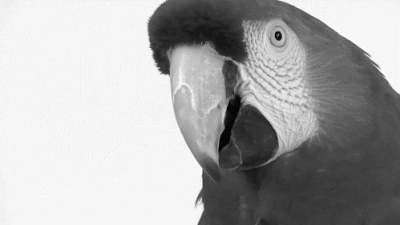THE ANIMALISTIC ROOTS OF CANCER
Malignant cancerous cells have 4 main differences compared to normal healthy cells:
1. "Primitive". Cancer cells are characterized by loss of differentiation. The more malignant, the more advanced the cancer, the more primitive cancer cells are. For example, in end-stage metastases (such as brain metastases in melanoma) the origin of the cancer is many times impossible to determine because the cells have lost so much of their differentiation, they have become so primitive, that the tissue of origin is impossible to be determined. In other words, cancer is the transition from a highly specialized differentiated state to a primitive undifferentiated state.
2. "Hunger". Compared to normal cells, cancer cells consume nutrients constantly, their metabolism is very high. This is one of the causes of cancer-related cachexia.
3. "Sex". Compared to normal cells, cancer cells reproduce (multiply) extremely fast and out of control.
1. "Primitive". Cancer cells are characterized by loss of differentiation. The more malignant, the more advanced the cancer, the more primitive cancer cells are. For example, in end-stage metastases (such as brain metastases in melanoma) the origin of the cancer is many times impossible to determine because the cells have lost so much of their differentiation, they have become so primitive, that the tissue of origin is impossible to be determined. In other words, cancer is the transition from a highly specialized differentiated state to a primitive undifferentiated state.
2. "Hunger". Compared to normal cells, cancer cells consume nutrients constantly, their metabolism is very high. This is one of the causes of cancer-related cachexia.
3. "Sex". Compared to normal cells, cancer cells reproduce (multiply) extremely fast and out of control.
4. "Domination": Compared to normal cells, cancer cells dominate their environment, are invasive.
At this point, it becomes obvious that the four main characteristics of cancer cells overlap with the four main characteristics of the animal: primitive, hungry and driven by reproduction and domination. The element that further highlights the similarities between cancer cells and animals is the fact that they "evolve" through genetic mutations driven by "natural selection"; this is the main process driving resistance for example in cancer medications...
According to recent estimates, "genetic" defects account for no more than 5-10% of all cancers (many debate that if anything this is an overestimate). What I describe is a potential explanation of the general picture and not of the "exceptions". For example, cancer in infants is a different discussion since the developing human at that age is still largely animalistic (acts mainly on instincts, not intellect), has not developed into a full human yet...
Therefore, cancer can be seen as a process of regression to an animalistic state at the cellular level. I speculate that it is the final outcome of long-lasting process of preventing humans to develop true intellect by keeping them in instinct-driven animal states through limitation of access to resources... cancer is the "release" or the "cellular transformation" of suppressed animal instincts... this is why intellect "protects" against cancer...
At this point, it becomes obvious that the four main characteristics of cancer cells overlap with the four main characteristics of the animal: primitive, hungry and driven by reproduction and domination. The element that further highlights the similarities between cancer cells and animals is the fact that they "evolve" through genetic mutations driven by "natural selection"; this is the main process driving resistance for example in cancer medications...
According to recent estimates, "genetic" defects account for no more than 5-10% of all cancers (many debate that if anything this is an overestimate). What I describe is a potential explanation of the general picture and not of the "exceptions". For example, cancer in infants is a different discussion since the developing human at that age is still largely animalistic (acts mainly on instincts, not intellect), has not developed into a full human yet...
Therefore, cancer can be seen as a process of regression to an animalistic state at the cellular level. I speculate that it is the final outcome of long-lasting process of preventing humans to develop true intellect by keeping them in instinct-driven animal states through limitation of access to resources... cancer is the "release" or the "cellular transformation" of suppressed animal instincts... this is why intellect "protects" against cancer...
ΔΙΗΝΕΚΗΣ 2016












